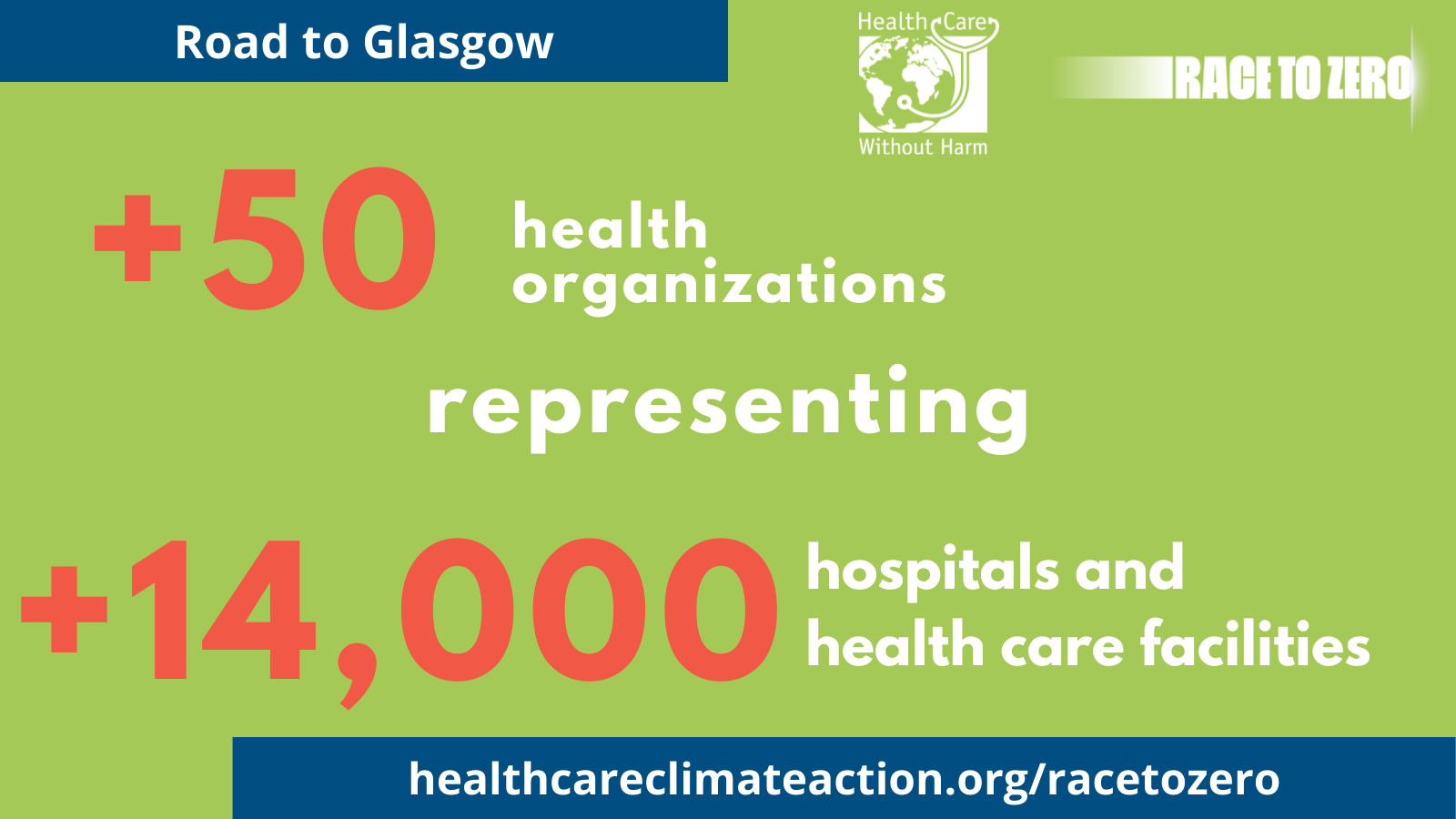Ahead of COP26, Health Care Without Harm, has announce that over 50 health organizations, collectively representing more than 11,500 hospitals and health centers, have joined the Race to Zero. By participating in this UNFCCC-backed campaign, these organizations are committing to achieve net zero emissions by 2050. They are now part of the largest ever alliance outside of national governments committed to delivering a zero carbon world in line with the Paris Agreement.
“The climate crisis is a health crisis. It’s heartening that health care organizations worldwide are providing leadership to this crisis. They’re sending a strong message to governments to take climate action and protect public health by accelerating a transition away from fossil fuels”, said Sonia Roschnik, International Climate Policy Director, Health Care Without Harm.

The health care organizations in Race to Zero include institutions ranging from individual public and private hospitals and health systems to state government health departments, including the Kerala Directorate of Health Services in India, the international private health care and insurance system, Bupa, and CommonSpirit Health, one of the largest non-profit systems in the United States. All the participating organizations demonstrate global leadership and that an organization of any size or location can act now for climate and health.
“It’s exciting to see the momentum of health care organizations worldwide join the Race to Zero. All health organizations, large and small, can accelerate the transition to a healthier, sustainable, and more equitable world,” said Gonzalo Muñoz, UN High Level Climate Champion.
In the lead-up to COP26, Race to Zero health care leadership is part of a diverse and growing global health sector movement for climate action. National government ministries are making high-level commitments to health care decarbonization and resilience. Similarly, more than 45 million health professionals have called for aggressive action to protect people’s health from climate change.
Health sector decarbonization is critical to reducing global emissions. Health Care Without Harm’s 2019 report shows that the sector’s climate footprint is equivalent to 4.4% of global net emissions, with the majority originating from fossil fuels used across facility operations, the supply chain, and the broader economy. To guide the sector’s decarbonization, Health Care Without Harm’s Global Road Map demonstrates how implementing seven high-impact actions can reduce global emissions by 44 gigatons over 36 years, equivalent to keeping more than 2.7 billion barrels of oil in the ground each year, and potentially saving more than 5 million lives by the end of the century. To realize this collective impact, Health Care Without Harm offers a suite of resources and collaboration platforms for health care institutions to measure, manage, and reduce their climate footprint.